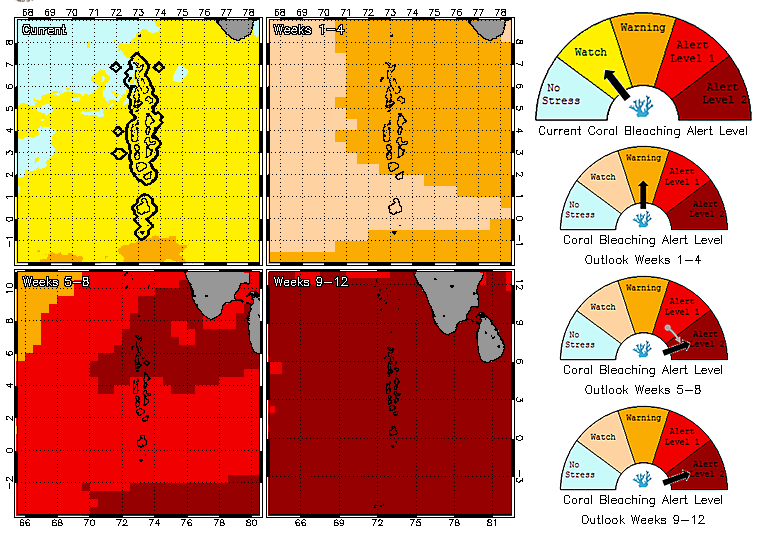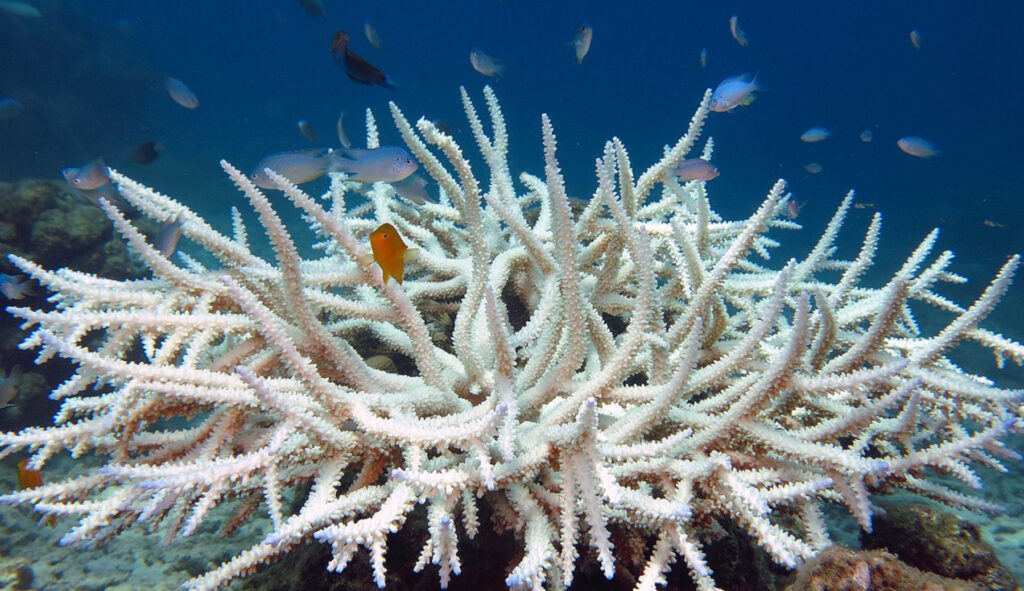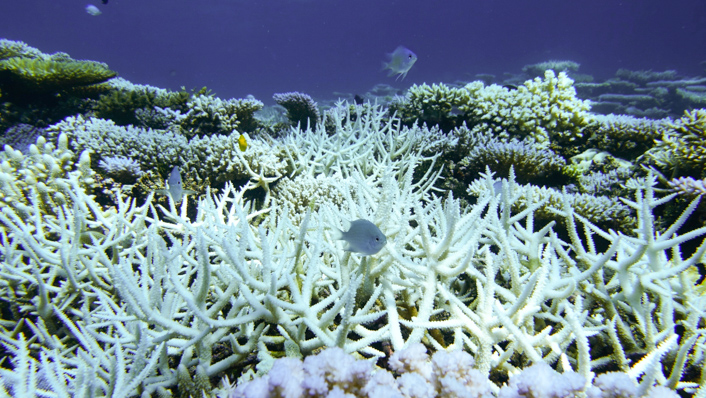The beautiful coral reefs of Maldives are currently facing a grave threat as a relentless heatwave grips the archipelago. Soaring temperatures accompanying the El Nino event have triggered warnings from authorities such as National Oceanic and Atmospheric Administration (NOAA) of the onset of widespread coral bleaching, casting a figurative shadow over the vibrant underwater ecosystems that draw tourists from around the globe.

Coral bleaching, a phenomenon exacerbated by rising sea surface temperatures, poses a severe risk to Maldives’ marine biodiversity. As corals expel the symbiotic algae vital for their survival, they turn stark white, signaling distress. If this situation is prolonged, it may lead to mass coral mortality akin to the incident caused due to the El Nino event in 1998 which destroyed more than 90 percent of the shallow water coral reefs in Maldives.
NOAA Coral Reef Watch’s forecasts for April 2024 paint a grim picture, indicating that the current heatwave is pushing Maldives’ coral reefs toward alarming levels of bleaching. Without intervention, the repercussions could be catastrophic, not only for the marine environment but also for the livelihoods of those dependent on reef-associated industries such as tourism and fishing.
The urgency of the situation calls for immediate action to mitigate the impact of the heatwave on Maldives’ precious coral reefs. One such solution advocated recently by the former president Mohamed Nasheed, is the utilization of uninhabited islands for tourism development instead of encroaching on existing reef systems.

This is one of many parts of the multi-faceted approach that is required to protect the coral reefs and protect these Maldivian assets that are vital to our tourism industry. In the face of this environmental crisis, collaboration between government agencies, conservation organizations, and local communities is paramount. Thankfully, the Maldives Marine Research Institute (MMRI) has been running 2 major programs with the goal of monitoring and preserving the coral reefs of Maldives. It is important that the work of these organizations is publicized in social media platforms of Maldives to create awareness of the current situation and the measures being taken to mitigate the risks. Creating awareness of these issues and the work done by these organizations will drive citizen initiatives towards the preservation of coral reefs.
Moreover, concerted efforts are needed to address the underlying cause of coral bleaching: climate change. Maldives, as a low-lying island nation highly vulnerable to the impacts of global warming, must champion initiatives to reduce greenhouse gas emissions and build resilience against future climate-related threats. Implementing measures such as marine protected areas, coral reef restoration projects, and sustainable fishing practices can help bolster the resilience of Maldives’ coral reefs in the face of adversity.
The choices made today will determine the fate of these invaluable ecosystems and the future of generations to come. Maldives needs to rise to the challenge, prioritize conservation efforts, and ensure that its coral reefs remain a vibrant and thriving legacy for future generations.



